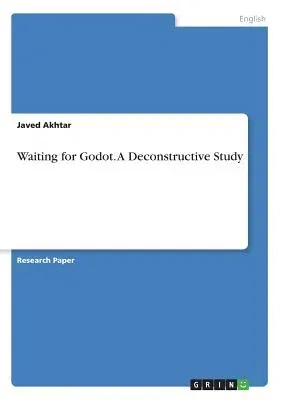Research Paper (postgraduate) from the year 2016 in the subject English
Language and Literature Studies - Literature, University of Balochistan
(Department of English), course: Literature, language: English,
abstract: Applying Derridean deconstructive hermeneutics to Samuel
Beckett's "Waiting for Godot", the author of this paper introduces a new
portrait of the personages of the play. The study will retrace the
pathways of Western tradition of the metaphysics of presence and its
compelling influences, which have proved to be the inhibiting and
fossilizing deadlocks of aporia of meaning and authoritative structures
of human thought to explore the new horizons. In its concluding mode,
the study exposes preventive stumbling aporic blocks of centralized
structure of the minds of characters in the given play. Jacques Derrida
(1930-2004) is the most eminent French philosopher and literary theorist
of deconstruction. He challenges the logocentric Western tradition of
the metaphysics of pres-ence, which has been dominant from Plato's
"Phaedrus" until Edmund Husserl's "Origin of Geometry" in Western
philosophy. His trend-breaking theory of deconstruction attacks the
metaphysical presuppositions of Western philosophy, ethics, culture,
politics and literature. It may give a new meaning and perspective to
Samuel Beckett's "Waiting for Godot", which has always been a focal
point for the world's literary critics. They have applied various
theories to it, but this paper tries to scrutinize the different facets
of the play from Derridean deconstructive theory.


